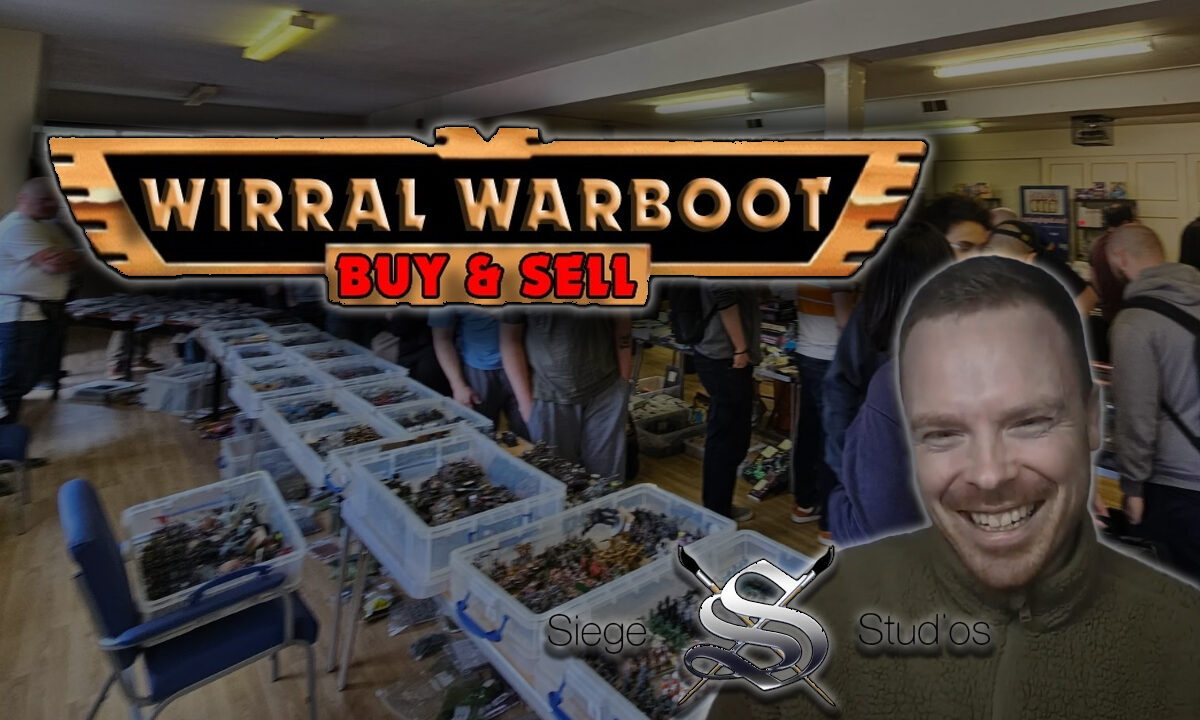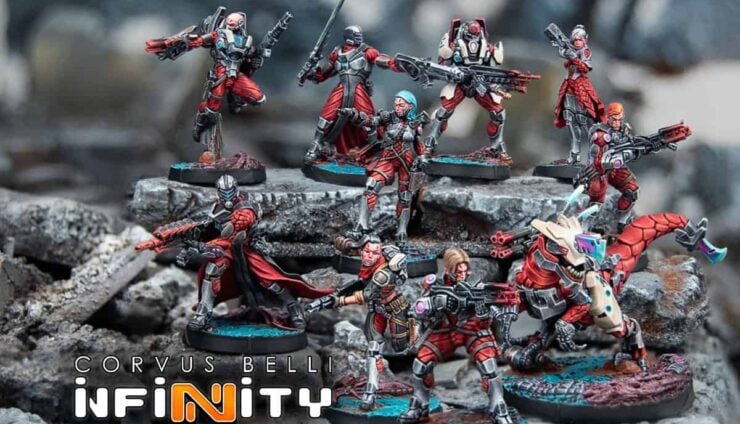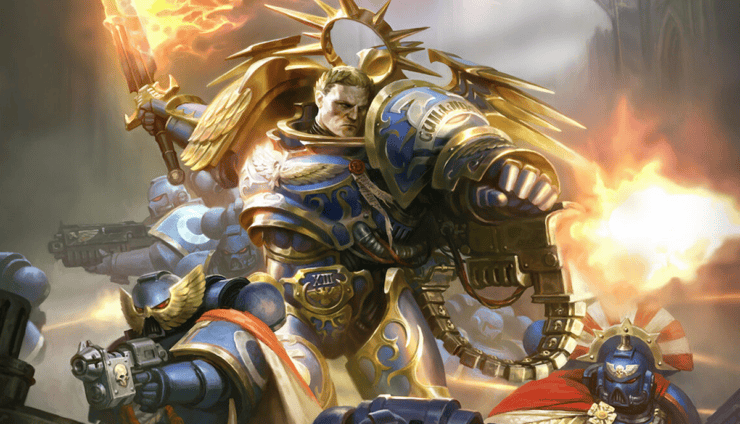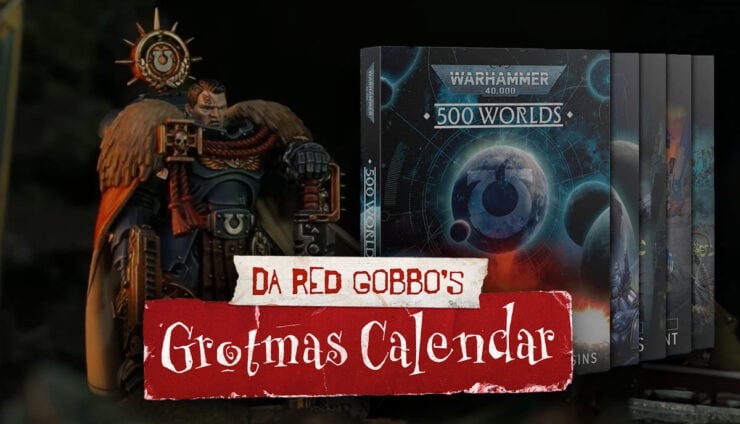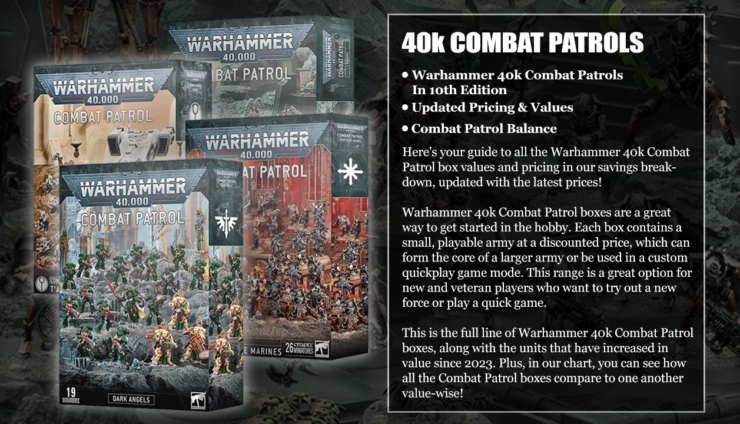Siege Studios tried to trademark the term “Warboot,” sparking backlash from UK hobbyists who’ve used the term for decades; here’s how the dispute unfolded.
If you’ve ever rummaged through boxes of minis at a local Warboot (or swap meet here in the US), you know it’s less about making money and more about swapping stories, finding that one missing bit, and feeding the hobby addiction.
So when Siege Studios tried to trademark the word “Warboot,” the community’s reaction was, as you would expect, about as calm as a squig on fire.
The term’s been part of the UK wargaming scene for decades, describing those car-boot-style sales where gamers offload old armies and grab fresh plastic.
The attempt to claim ownership of something so community-driven didn’t sit well, sparking outrage and a swift apology. Here’s how it all went down, and what it means for the hobby going forward.
What Is a Warboot Anyway?
In UK gaming circles, a Warboot refers to an event where hobbyists bring tabletop gaming gear, miniatures, terrain bits, rulebooks, and more to sell or trade, something like a car boot sale, (or swap meet here in the States) but for gamers. Many organizers, such as Wirral Warboot, have used that term for years without commercial backing.
So when Siege Studios filed a trademark application for “Warboot,” alarm bells rang. Many small-scale events rely on that familiar name to attract attendees. Changing it, especially under legal threat, can disrupt that grassroots marketing and community trust.
The Timeline: From Application to Takedowns

- Siege Studios first registered a Warboot logo trademark, not the word itself.
- Later, they filed an application to trademark “Warboot” as a text mark.
- Shortly after the grace period for challenges closed, emails and social-media messages went out to smaller Warboot organizers, asking them to cease use of the term.
- Wirral Warboot, one of the more established UK events using the name, was told to rebrand. They pushed back, stating that they’ve run non-profit events and that the term has been common in the hobby for decades.
- Siege Studios’ owner, James Otero, posted an apology (below), saying he’s canceling the trademark application and asking to rescind the takedown notices.
The public response has leaned heavily on community pressure and reputational risk, classic in hobby markets.
Siege Studios’ Apology
View this post on Instagram
After the backlash hit, Siege Studios’ owner, James, posted a long apology, part reflection, part damage control. He admitted the trademark attempt was a poor decision, said he’d cancelled it, and even called it “not my finest moment.” On paper, it was the kind of mea culpa that should have calmed things down.
But in the Warhammer hobby community, trust isn’t something you can patch up with a few well-written paragraphs.
Why Trademarking “Warboot” Was Probably a Mistake
View this post on Instagram
- It’s a Generic or Descriptive Term: Terms like “car boot” or “swap meet” are generic and can’t be monopolized. Since Warboot is essentially a portmanteau combining war gaming and car boot sales, many argue it falls into that same category. Granting exclusive rights over it risks shutting out community events.
- Community Backlash Hits Hard: In a tight-knit hobby scene, community outrage spreads fast. Siege Studios probably underestimated how many people would defend local organizers. Being seen as the “bad guy” costs trust, brand loyalty, and goodwill.
- Legal Costs vs Gain: Fighting opposition to a generic mark can be expensive, especially when many users can claim prior usage. The potential gains, owning the name look small compared to the effort needed to enforce it.
- Canceling Doesn’t Erase the Damage: Even after withdrawing the trademark, some organizers may have begun rebranding. The fear, confusion, and network effects (social media names, event pages, word-of-mouth) leave long-term scars.
Final Thoughts on Siege Studios’ “Warboot” Trademark
Even though the trademark’s been dropped, the damage to Siege Studio reputation lingers. It’s a reminder that the hobby thrives on shared culture, not corporate ownership.
Once you try to claim something that’s always belonged to everyone, the crowd tends to keep its receipts.
When a business seeks control over a term widely used by small, grassroots events, the effect isn’t just legal, it’s cultural. Many folks worry that the incident will deter new events, stifle creativity, or make newer organizers play it safe. That’s bad for the hobby’s growth.
The Warboot trademark saga is more than legal drama. It’s a lesson in community power, intellectual-property limits, and how names in niche hobbies carry real weight.
We think the loud response from Wirral Warboot, Element Games, and others made a difference here.
See the Latest 40k Roadmap here!
